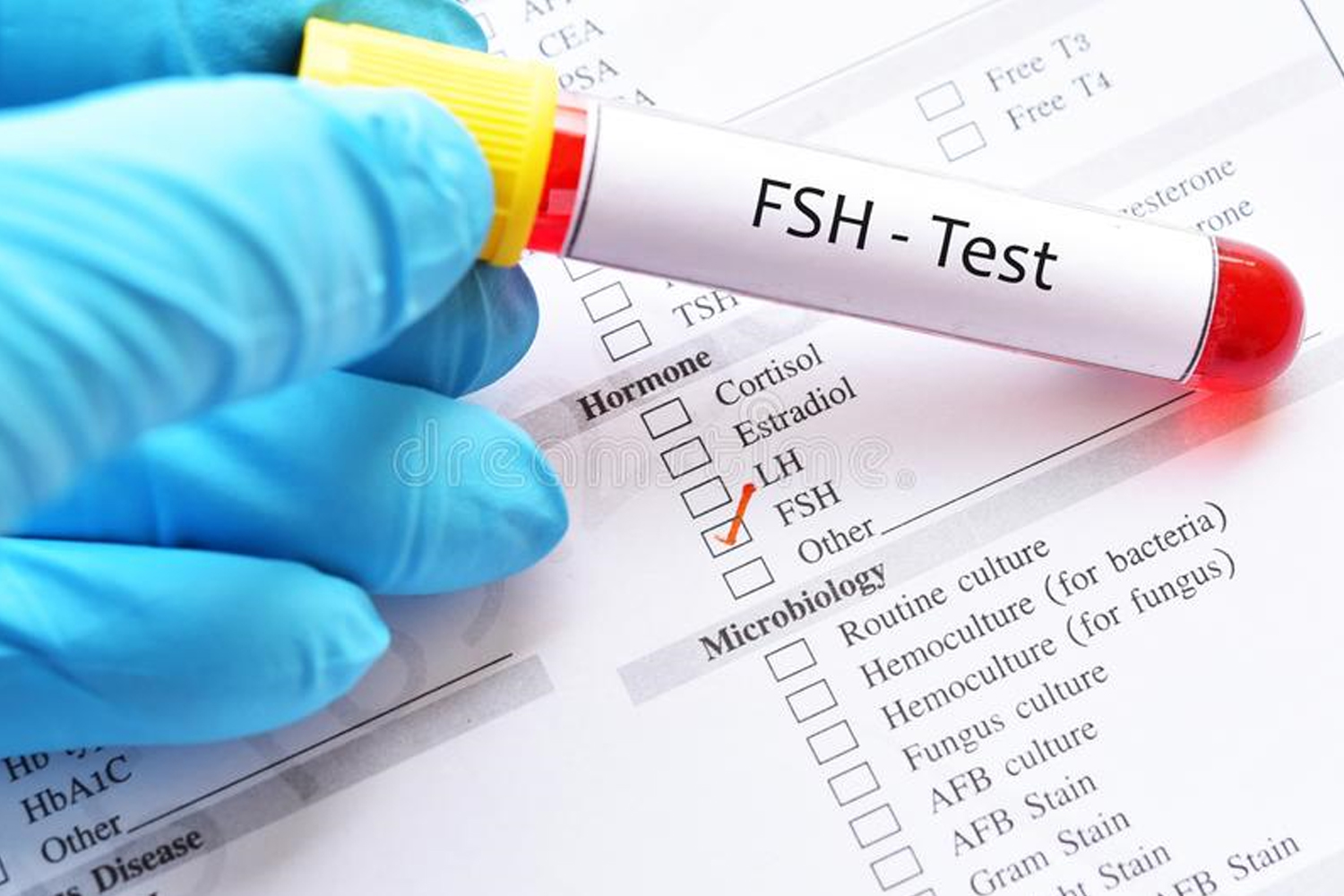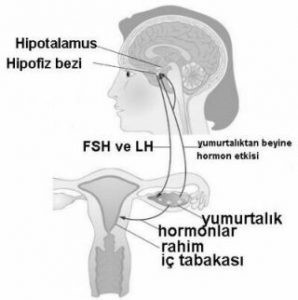
A tiny gland located in the brain called the pituitary gland produces hormones from the ovaries that stimulate the development of egg cells.
This is why he is called the ‘conductor’ of the reproductive system. The 2 basic hormones released from the pituitary provide the development of egg cells in the ovaries, the production and release of estrogen and progesterone into the blood, normal menstrual bleeding, the formation and continuation of pregnancy.
These two hormones are “luteinizing hormone (LH for short)” and “follicle developing hormone (FSH for short)”. If, for any reason, there is a disruption in the production of LH and FSH from the pituitary and into the blood, the result of this is the disruption of the functioning of the entire female reproductive system.
This means that there are three basic wheels that ensure the regular and healthy functioning of the female reproductive system:
- Hipotalamus (regulates the work of the pituitary)
- Pituitary (regulates egg cell production by the ovaries)
- Ovaries—- develop egg cells, produce Estrogen and progesterone.

The main hormone that ensures egg development is FSH produced from the pituitary gland. LH is responsible for ovulation.
We would like to give an example in order to explain how the egg cell offspring of the pituitary can be explained.
Suppose the child does his homework regularly and studies well. In this case, you don’t have to call it to study frequently, to interpret it. But if he starts neglecting his homework and lectures, you’ll have to remind his duties to him loudly and frequent. If the ovaries are functioning properly and are able to develop egg cells regularly, as in this example, the pituitary also produces a normal amount of FHS. There is no need to raise the FSH level.
However, if the ovaries are old, and normal eggs can no longer develop, higher than normal amounts of FSH are secreted from the pituitary. The aim is to stimulate the ovaries more, to encourage weighing egg density, as in our examples of mothers who stimulate interpretations louder.
One of the most important hormone test when examining infertility is the level of FSH. If on the 2nd or 3rd day of menstruation, the level of FSH hormone in the blood of the woman has increased, you will understand that the ovaries cannot function normally and therefore more FSH is produced from the pituitary.
If the FSH level is above 12 units, we consider these women to have reduced egg cells and we recommend direct IVF treatment.
If the FSH level is above 25 units, then you realize that there are almost no eggs left in the ovaries. Even with this mass IVF treatment, it is very difficult to achieve pregnancy. Because there are no egg cells suitable for fertilization in the ovaries.
